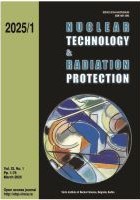
THRESHCHRONIC Concept Proposal of a Fuzzy Bayesian Tool for Health Support
Pages: 73-78
Authors: Rares SuvailaAbstract
A multitude of chronic diseases are not yet classified as being stochastic or deterministic. The purpose of this work was to provide an adaptative software tool which enables detection of thresholds for the cause-consequence relationships with a maximum degree of confidence given the available statistics. This tool is meant to be tested on radioactivity datasets, for which the thresholds exist and are well-known, then to be applied to other datasets on radioactivity and microplastics (environment), antibiotics (pharmacological factors), and nitrites (food industry). The main algorithm for this supporting program for health research was built as an unitary procedure for all situations, additional covariance analysis on multi-factor cases will be performed, together with a scheme which explicates the importance of transfer factors for the data recorded on various substances (e. g. water-fish-human transfer for radioactivity and microplastics). The key elements are the non-biased datasets available and the algorithms for conditional probability calculations and potential thresholds determination. One very important action to take is separating the accurate and verifiable data from the plethora of biased information from the repositories.
Key words: stochastic process, deterministic process, environmental influence, fuzzy logic, bayesian statistics, correlation analysis
FULL PAPER IN PDF FORMAT (470 KB)
